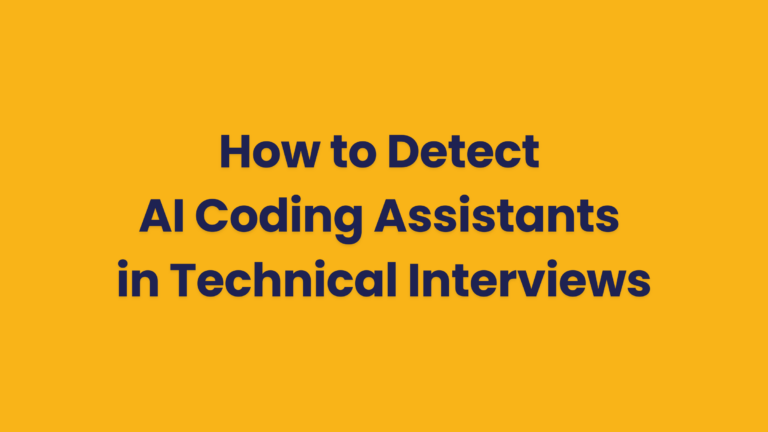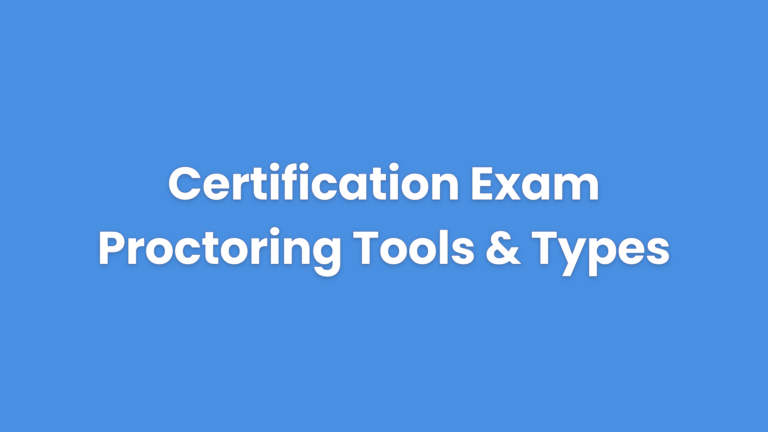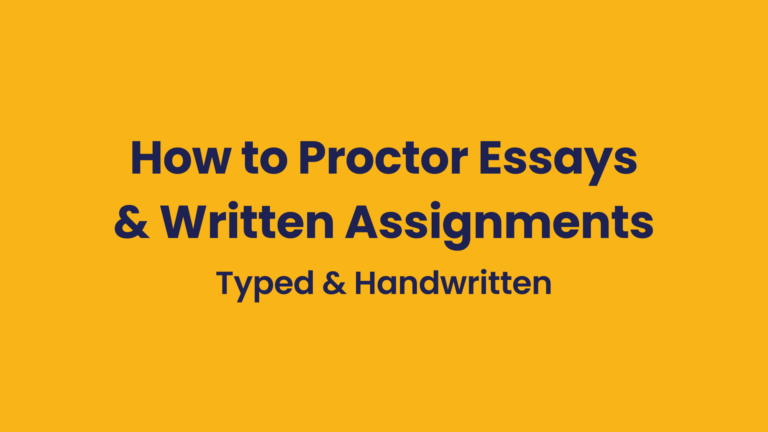What if your certification and licensure exam content were leaked online? How much would your program’s credibility and value suffer if candidates and employers knew your exams could be easily found or bought online?
Why would candidates spend time and money on credentials that aren’t taken seriously? And why would companies hire candidates or promote employees if the answers are freely available online?
Answer sharing (and selling) is a real thing that impacts every industry around the world, from healthcare and cybersecurity to teaching and finance.
How does credentialing exam content get leaked?
Content from credentialing exams can be leaked when candidates:
- Take exams for the sole purpose of memorizing questions, then sharing and selling them online
- Record their screens or take screenshots
- Copy and paste text
- Take photos on their phones
Where is professional exam content shared?
Certification and licensure exam content is typically shared on:
- Exam prep websites that sell content in “study guides” and “practice tests”
- Forums and social media groups
- Texts & email
Industries struggling with leaked exam content
Healthcare
-
Medical licensing exams
- 139 physicians’ statuses with the American Board of Internal Medicine (ABIM) were suspended or revoked after they shared exam questions with the director of an exam prep company. Many of ABIM’s copyrighted questions were posted verbatim on the prep company’s website.
- And hundreds of U.S. medical licensing exam scores were invalidated after candidates memorized and shared questions. Many candidates were forced to retake the exam after investigators found identical answers and suspicious timing patterns.
-
Nursing certification exams
- The Pediatric Nursing Certification Board (PNCB) found that its Acute Care CPNP-AC exam content had been shared. In response, they immediately suspended testing and had to develop an entirely new certification exam.
Medical licensing exams
139 physicians’ statuses with the American Board of Internal Medicine (ABIM) were suspended or revoked after they shared exam questions with the director of an exam prep company. Many of ABIM’s copyrighted questions were posted verbatim on the prep company’s website.
And hundreds of U.S. medical licensing exam scores were invalidated after candidates memorized and shared questions. Many candidates were forced to retake the exam after investigators found identical answers and suspicious timing patterns.
Nursing certification exams
The Pediatric Nursing Certification Board (PNCB) found that its Acute Care CPNP-AC exam content had been shared. In response, they immediately suspended testing and had to develop an entirely new certification exam.
Cybersecurity
Employees from NCC Group, a CREST member company, created and shared proprietary cybersecurity certification exam questions and answers. CREST, which accredits cybersecurity firms and certifies professionals, said NCC Group staff compiled the test materials and uploaded them to GitHub and Dropbox, which violates NDAs and CREST’s code of conduct.
Accounting and financial services
Answer sharing has cost the Big Four and their affiliates more than $132.5 million in fines since 2022, including one case with a $100 million fine. Employees, including senior leaders, were caught exchanging answers for licensure exams and tests for employee training and development. Along with the fines, the firms were ordered to update ethics policies and add stricter monitoring of employee testing.
Law enforcement
Even though civil service exams aren’t credentialing exams, answer sharing has the same consequences.
- Cadets at the Pennsylvania State Police Academy received answers to exam questions and shared them with each other for the traffic law, criminal law, and final cadet exams.
- Even the in-person 2022 NYPD Sergeant promotion exam was heavily compromised when officers used their phones to take pictures of test questions and share answers with other officers. Ultimately, 35% of exam questions were shared with over 1,200 officers.
Teaching
A test-prep company had staff repeatedly take the Florida Teacher Certification Exams (FTCE) and the Florida Educational Leadership Exam (FELE) in order to memorize the questions to republish and sell online. The stolen exam content, which was owned by the Florida Department of Education and the State Board of Education, was republished in study guides and training materials and sold to customers.
Plumbing
A two-part plumbing certification exam and its answers were leaked and shared days before 224 apprentices sat for it. The agency overseeing the exams was forced to create new question banks and update program materials to protect certification exam integrity.
Proctoring software to secure credentialing exam content
While you can’t prevent someone from memorizing your exam content, you can use proctoring software to find and remove leaked content, prevent candidates from using their phones and other devices, and block them from recording their screens, taking screenshots, and copying and pasting your content.
- Search & DestroyTM: Automatically scans the internet for your credentialing exam content, and it only takes a few minutes. If it finds any, you can send takedown requests with a single click.
- Cell phone detection: Detects when candidates try to use cell phones and other devices (e.g., tablets and smartwatches) to look up questions and identifies nearby devices using AI-enabled Apple Handoff technology.
- Secure desktop: Records the candidate’s screen while blocking unauthorized websites, applications, and screen recorders. It also prevents them from copying and pasting your content, screenshotting, and resizing the exam browser window.
- Video monitoring: Uses the webcam and an optional second camera to monitor for unauthorized resources like phones, which could be used to take photos of exam content, or pen and paper, which could be used to write down questions.
Docebo University: Cutting costs while scaling customer certification
Challenge: Docebo University (DU) needed a reliable, scalable online proctoring solution after its previous provider was ineffective and time-consuming, which forced its team to proctor exams manually.
Solution: DU quickly implemented Honorlock’s hybrid solution to secure exams while simplifying the experience for both learners and administrators.
Results: Scaled certification and credentialing to 45,000+ learners and cut proctoring-related admin hours to save more than $50,000 annually.
“Partnering with Honorlock was a game-changer… We not only freed up our team’s time, but we also elevated the certification experience for the 45,000 learners we serve.” — Melissa Kruminas, Senior Director of Learning at Docebo
HCSG: Improving food service certification exam security & accessibility
Challenge: Healthcare Services Group (HCSG) struggled to certify its food service workforce because its previous remote exam proctoring solution was difficult to use, lacked accessibility, and did not provide multilingual support.
Solution: HCSG partnered with Honorlock to proctor food service certification exams and launched eLuminate, which assesses and certifies food service and hospitality professionals, to refocus and improve exams.
Results: Honorlock’s proctoring platform, multilingual support, and Chromebook compatibility created an accessible, user-friendly certification process that meets the needs of food service managers nationwide.
“I have been using Honorlock for a while now, and I have to say I love it… The testing process is quick, simple, and less stressful… It’s convenient and easy to fit into their daily schedules. I highly recommend Honorlock.” – Jeanne Hanlon-Martinez, RD & People Development Manager at HCSG
The value of protecting professional credentialing
Preventing cheating protects the credibility and value of the credentials because employers and candidates know they actually mean something. If they’re proctored effectively—keyword: effectively—they can help verify that candidates have the knowledge and skills. Employers and candidates know the answers can’t just be pulled from the internet, and that ChatGPT and invisible AI assistants can’t help.
What does “proctored effectively” mean?
It means choosing a test proctoring solution that can prevent cheating without ruining the test experience. The recent California Bar Exam showed what happens when an online proctoring service does the exact opposite. It disrupted test takers, technical failures caused chaos, and ineffective features allowed exam content to be shared publicly.
Types of exam proctoring for credentialing programs
There are several different types of proctoring solutions and tons of tools and features beyond the ones we mentioned earlier.
But you have to find the right approach for your organization. Maybe it’s a hybrid solution that combines AI and live proctors. Or it could be using your own proctors but supporting them with AI monitoring software.
Common options to proctor credentialing exams:
Hybrid (AI + live): AI monitors exams and flags behaviors for a live proctor to review. Some services interrupt exams immediately, while others only intervene when necessary after reviewing.
Bring Your Own Proctor (BYOP): Your staff proctors exams and controls the rules and processes, while the software monitors behavior.
Automated: Software (including a browser guard) and/or AI monitors behavior to detect misconduct and prevent and block unauthorized activities.
Live: Human proctors watch multiple candidates take exams in real time.
Record and review: Exams are recorded for the proctoring company (or your staff) to review later.
If exam content is compromised, the reputation and value of your credentialing program and its exams can decline.
Why earn a certification that no one takes seriously? Why hire someone who passed a licensure exam that’s available online?
Invest in a remote proctoring service that offers out-of-the-box features your organization needs to secure exams and protect your proprietary content.


















